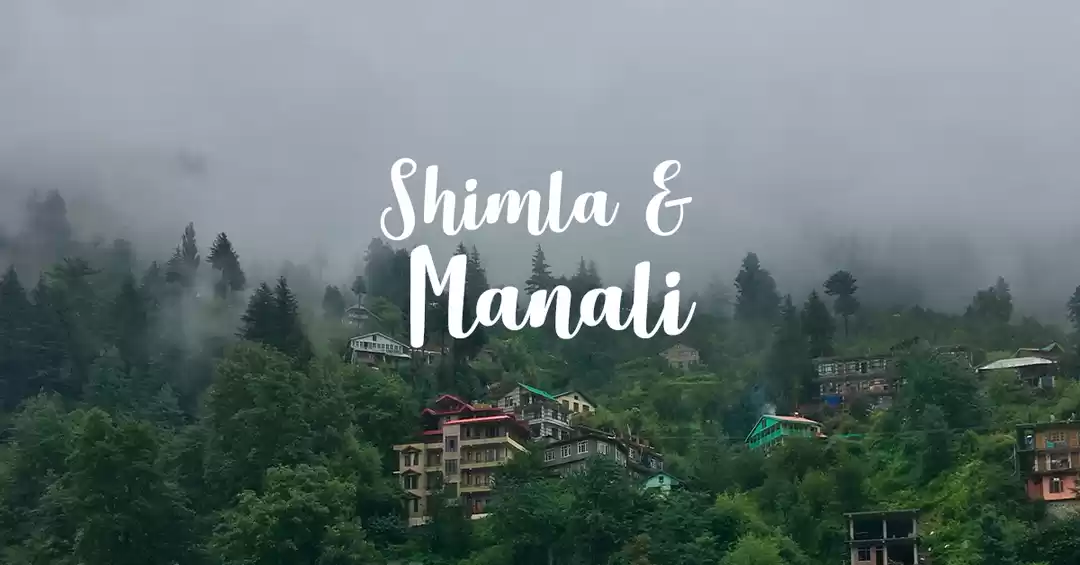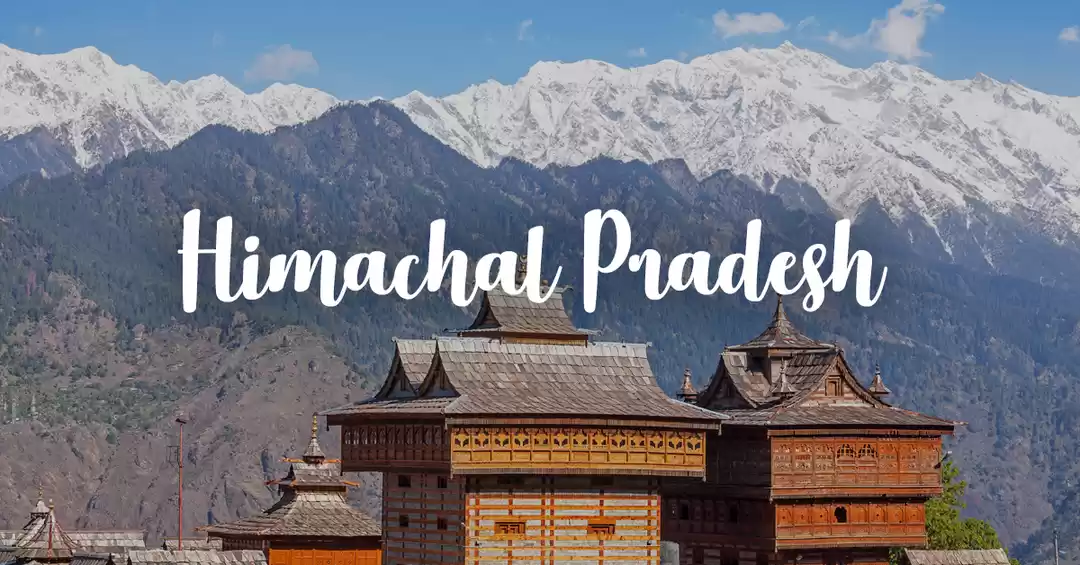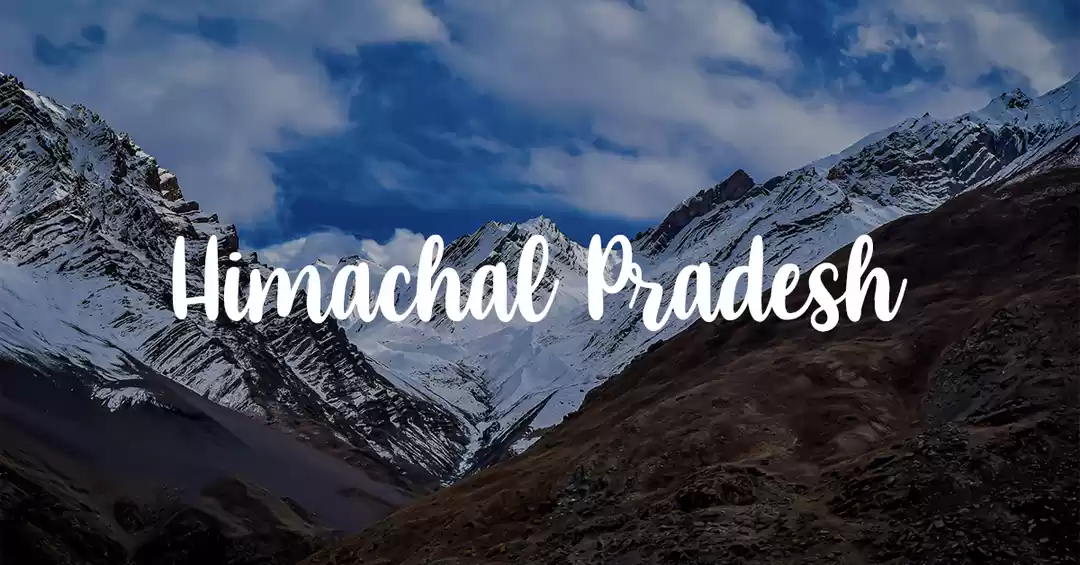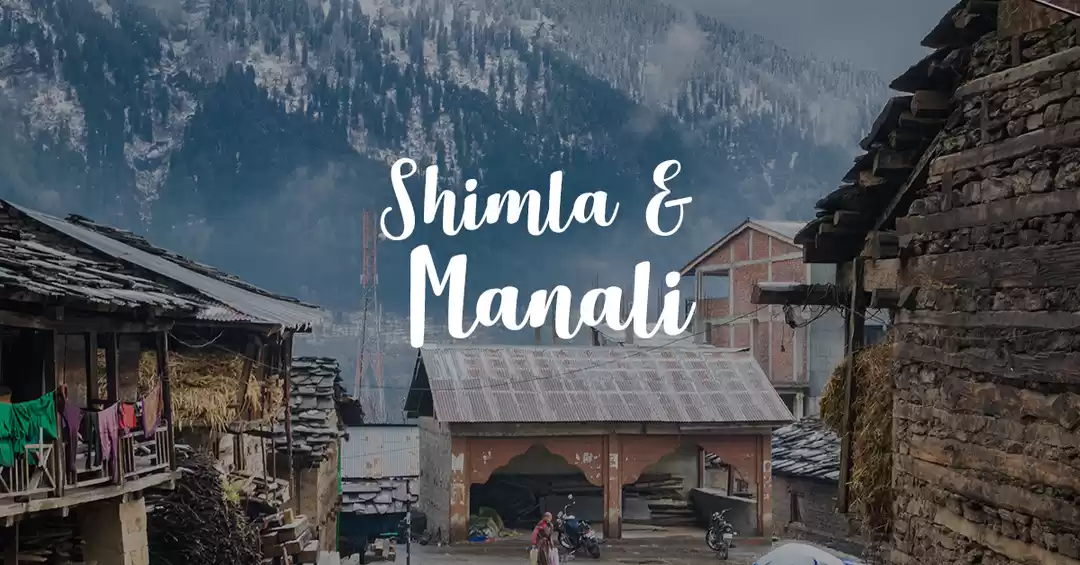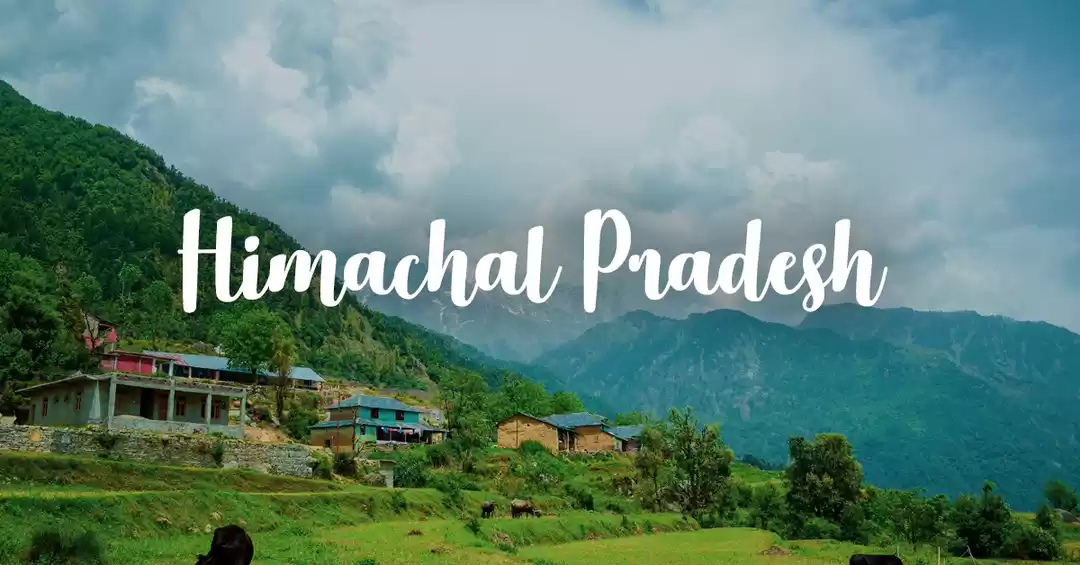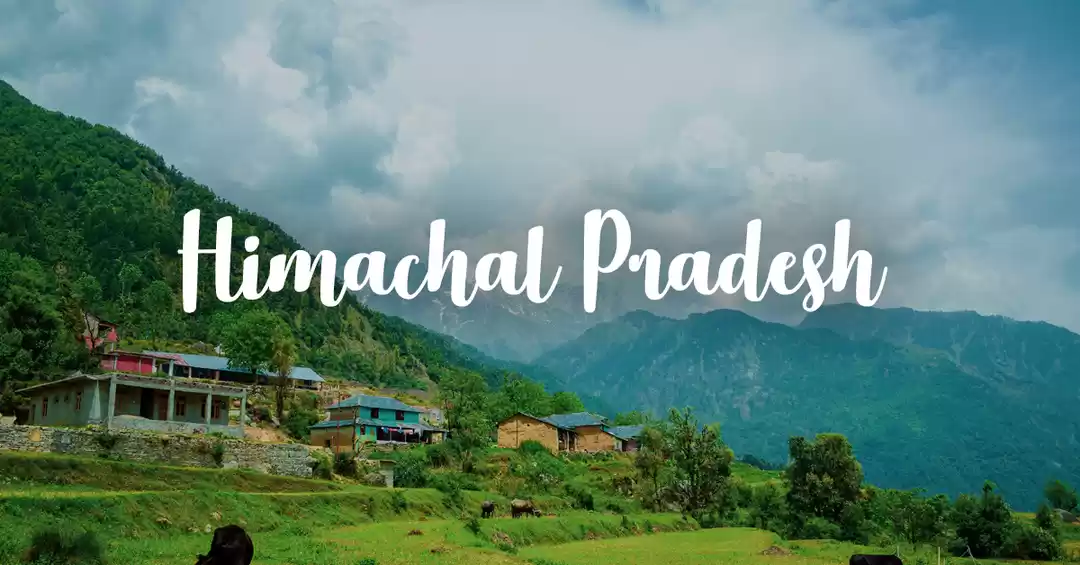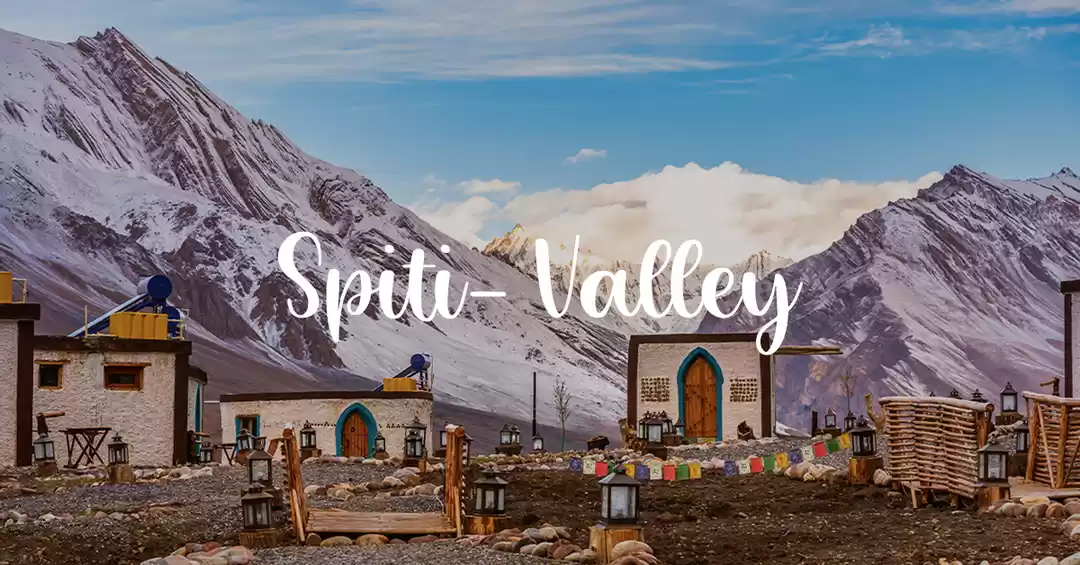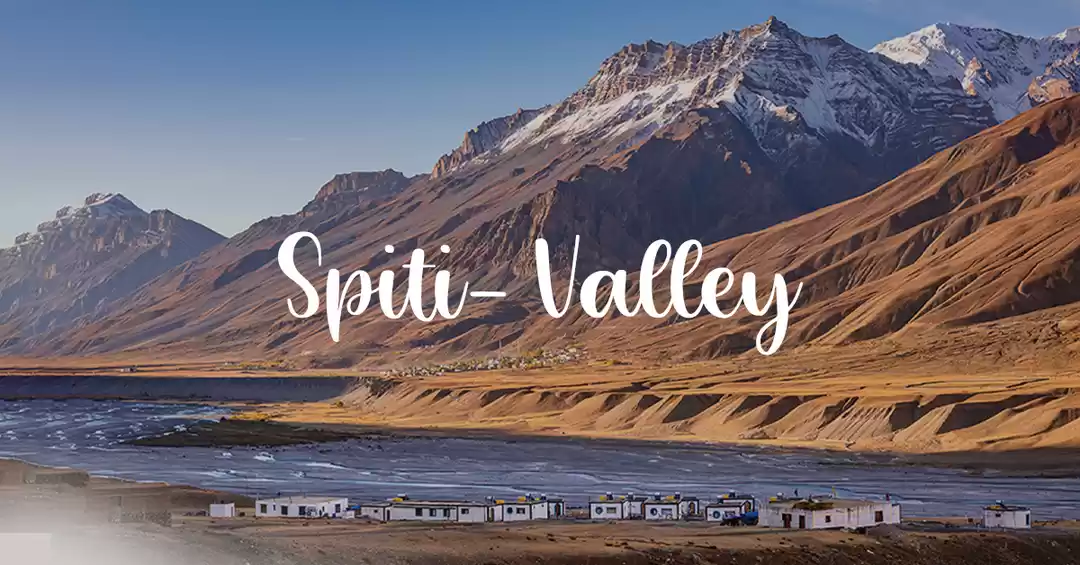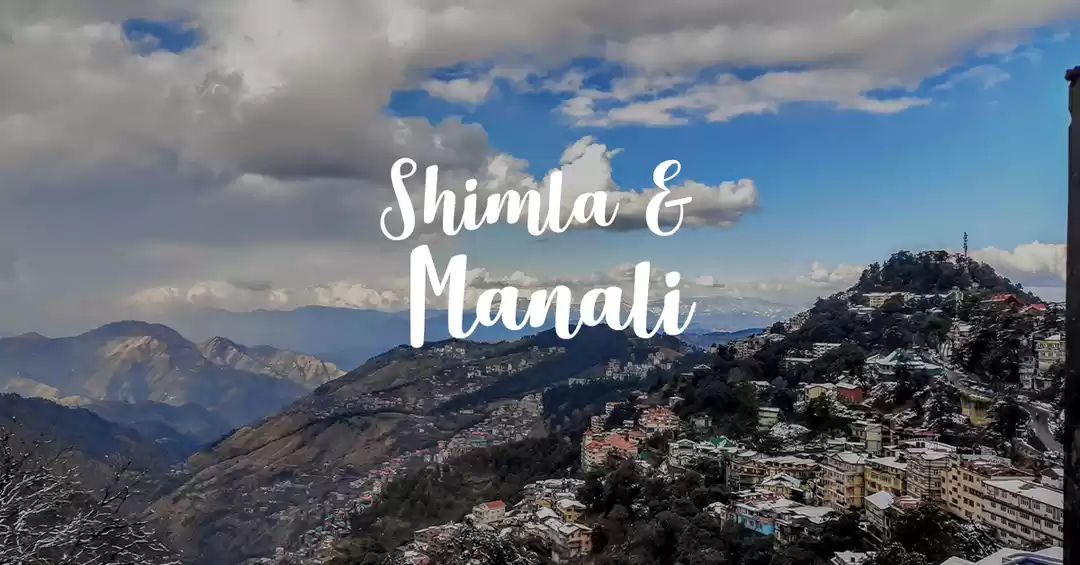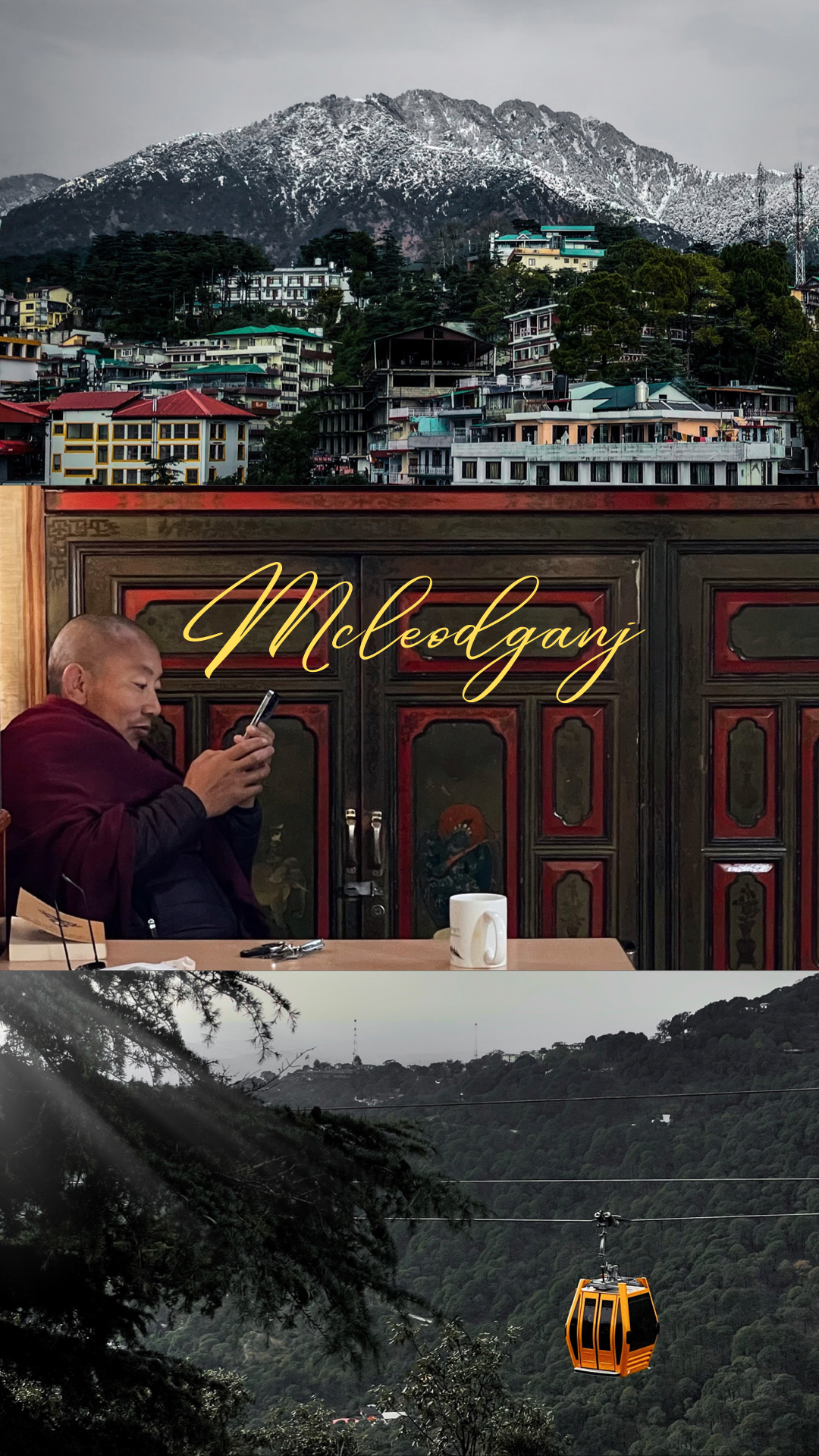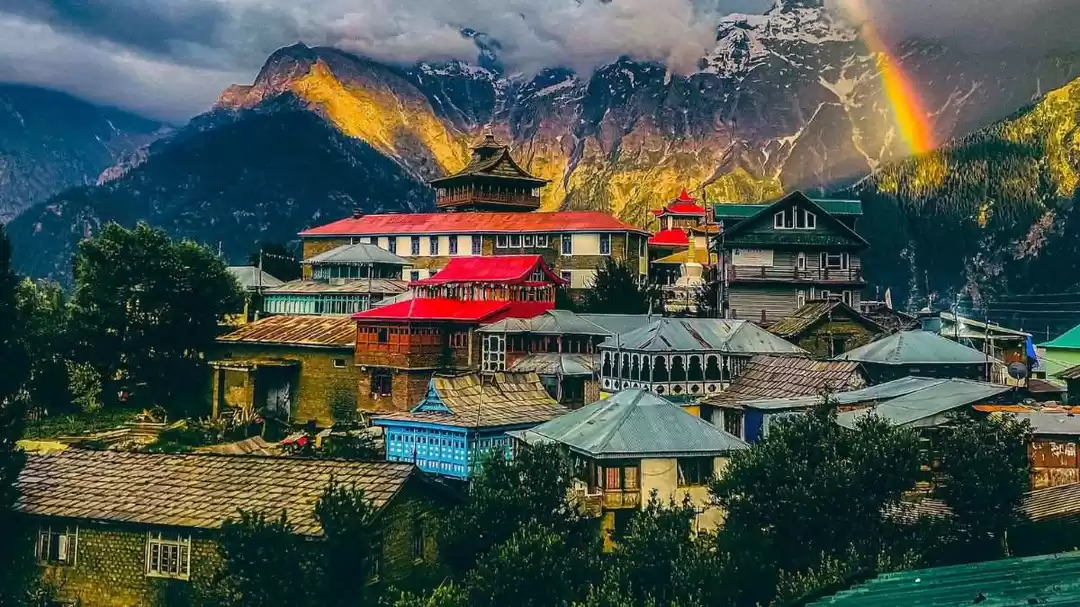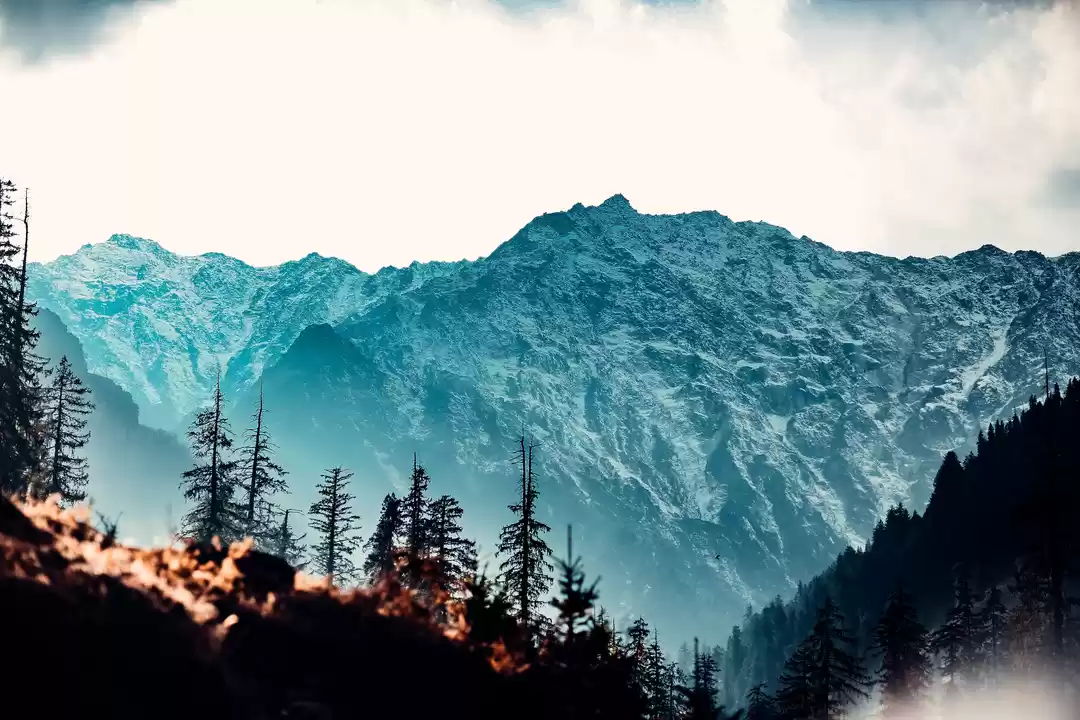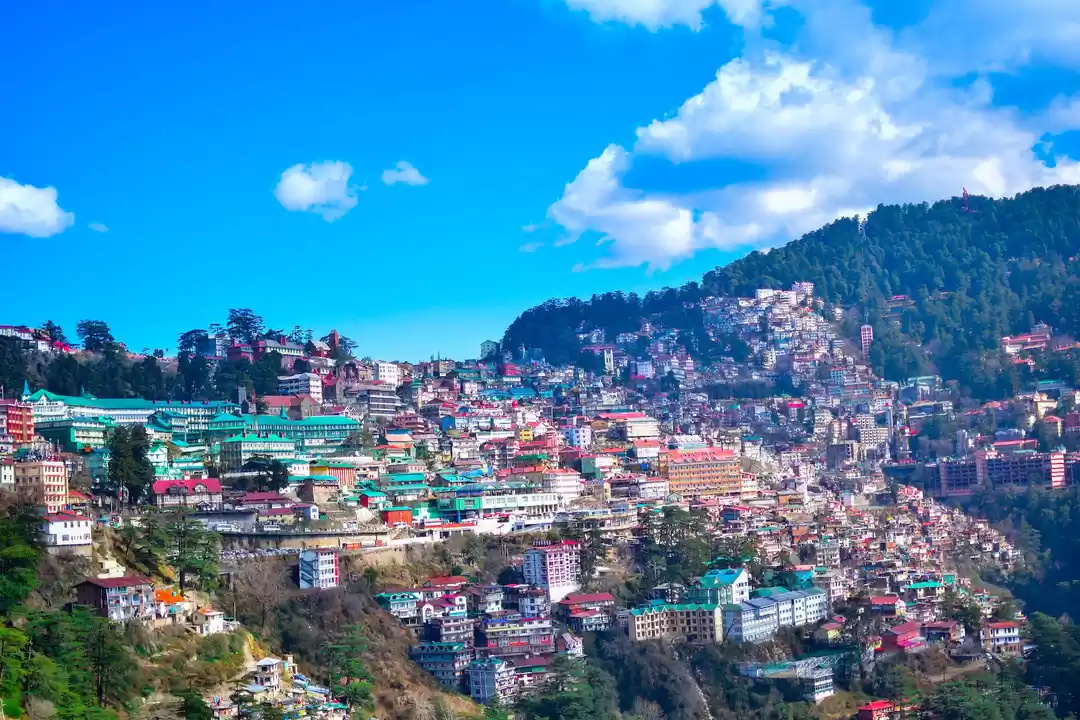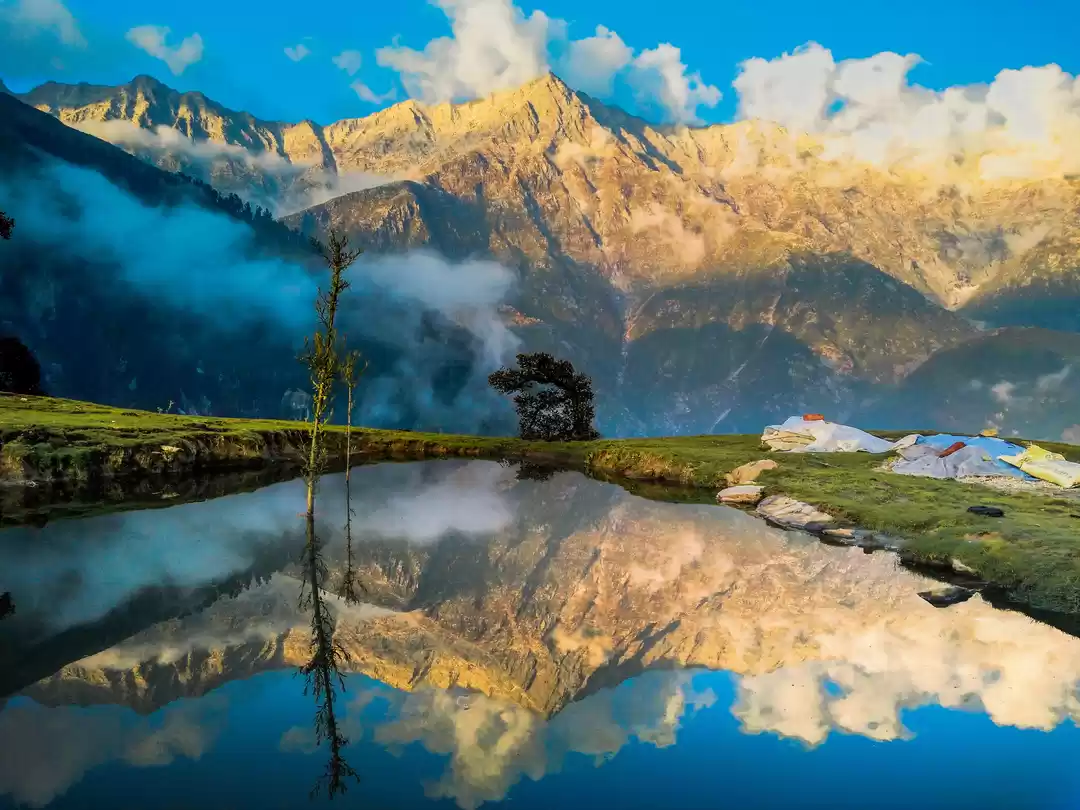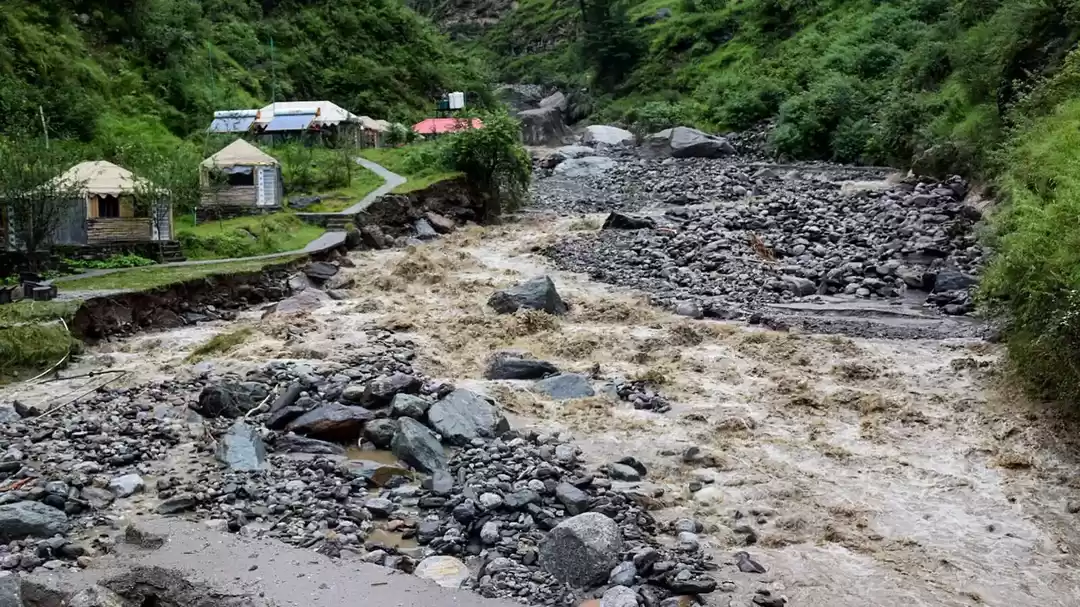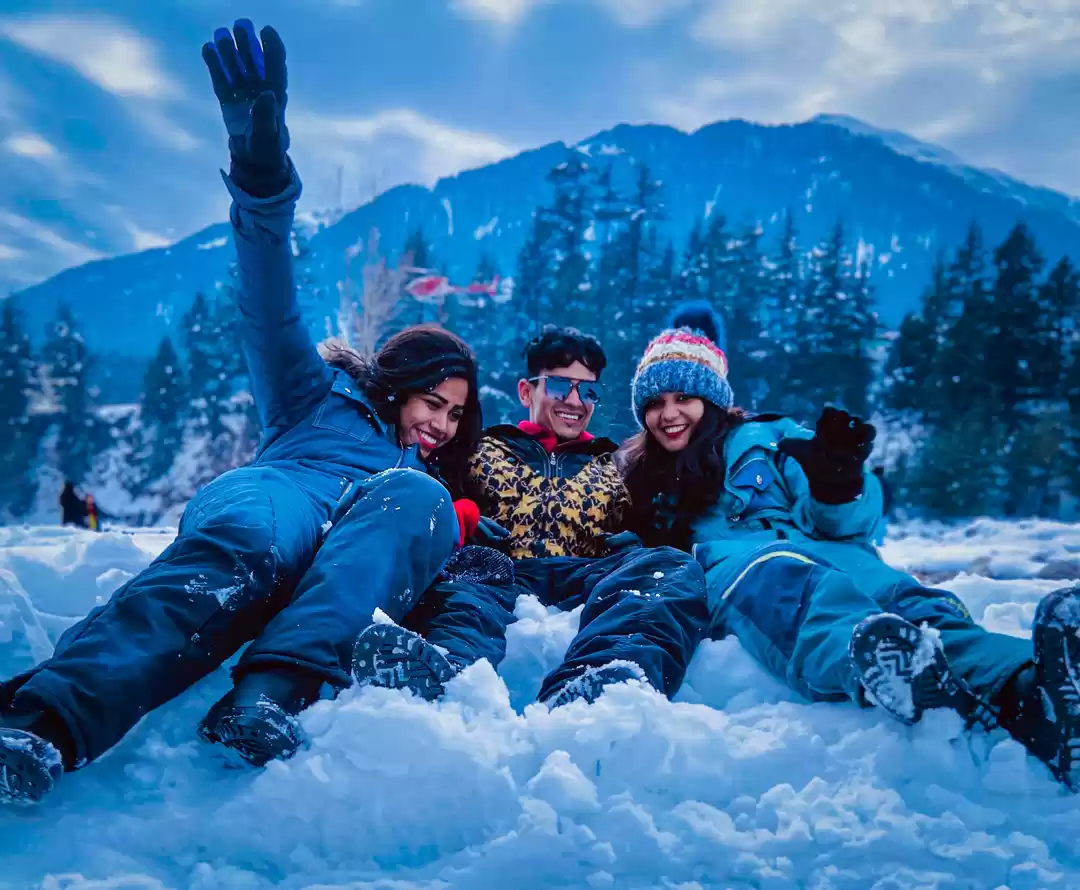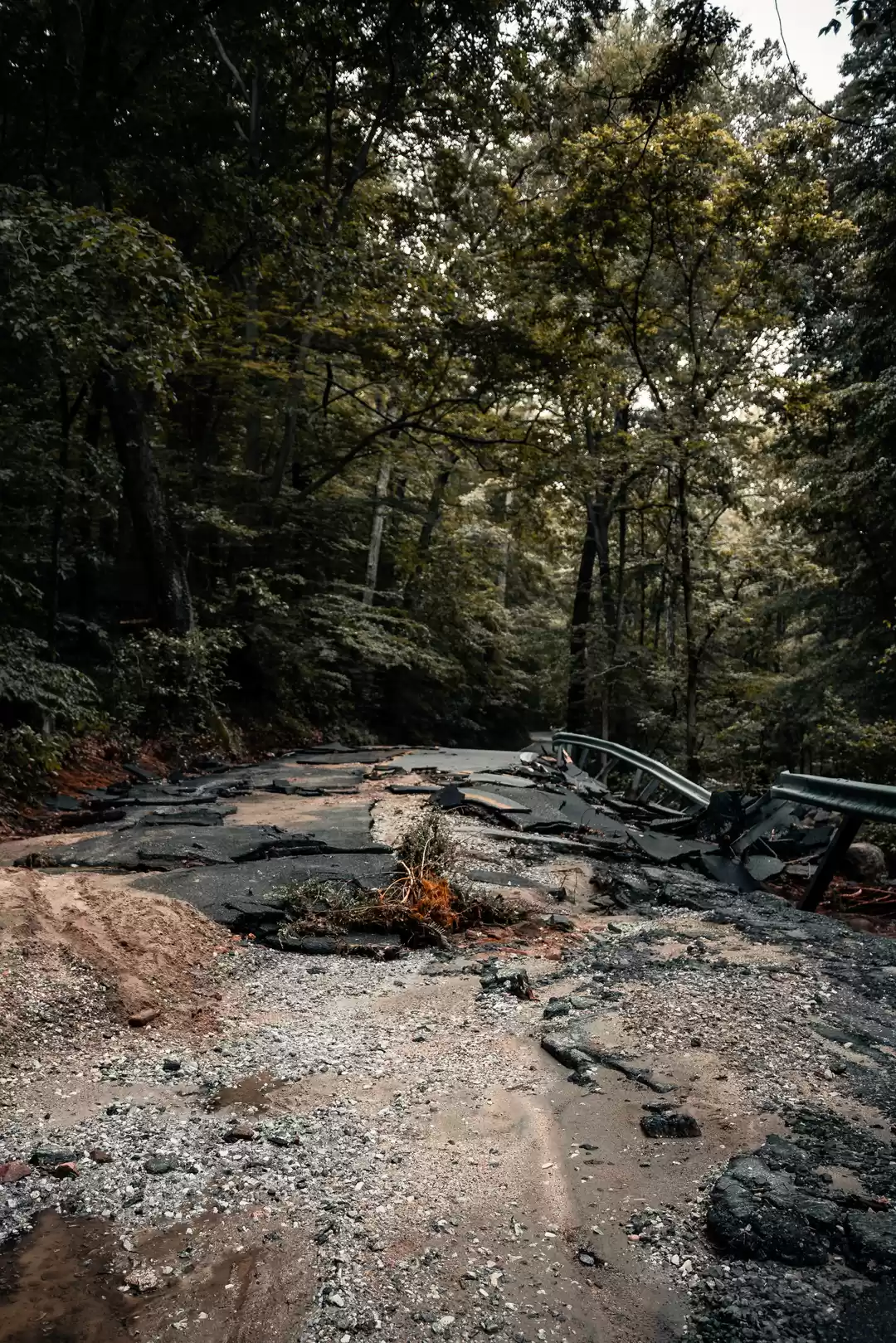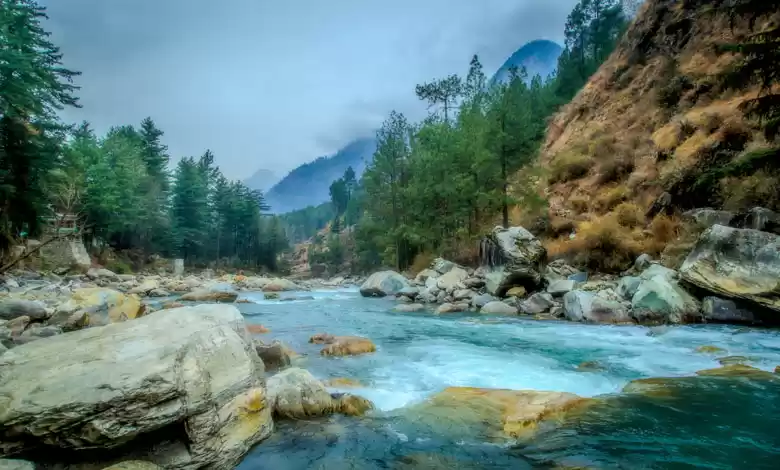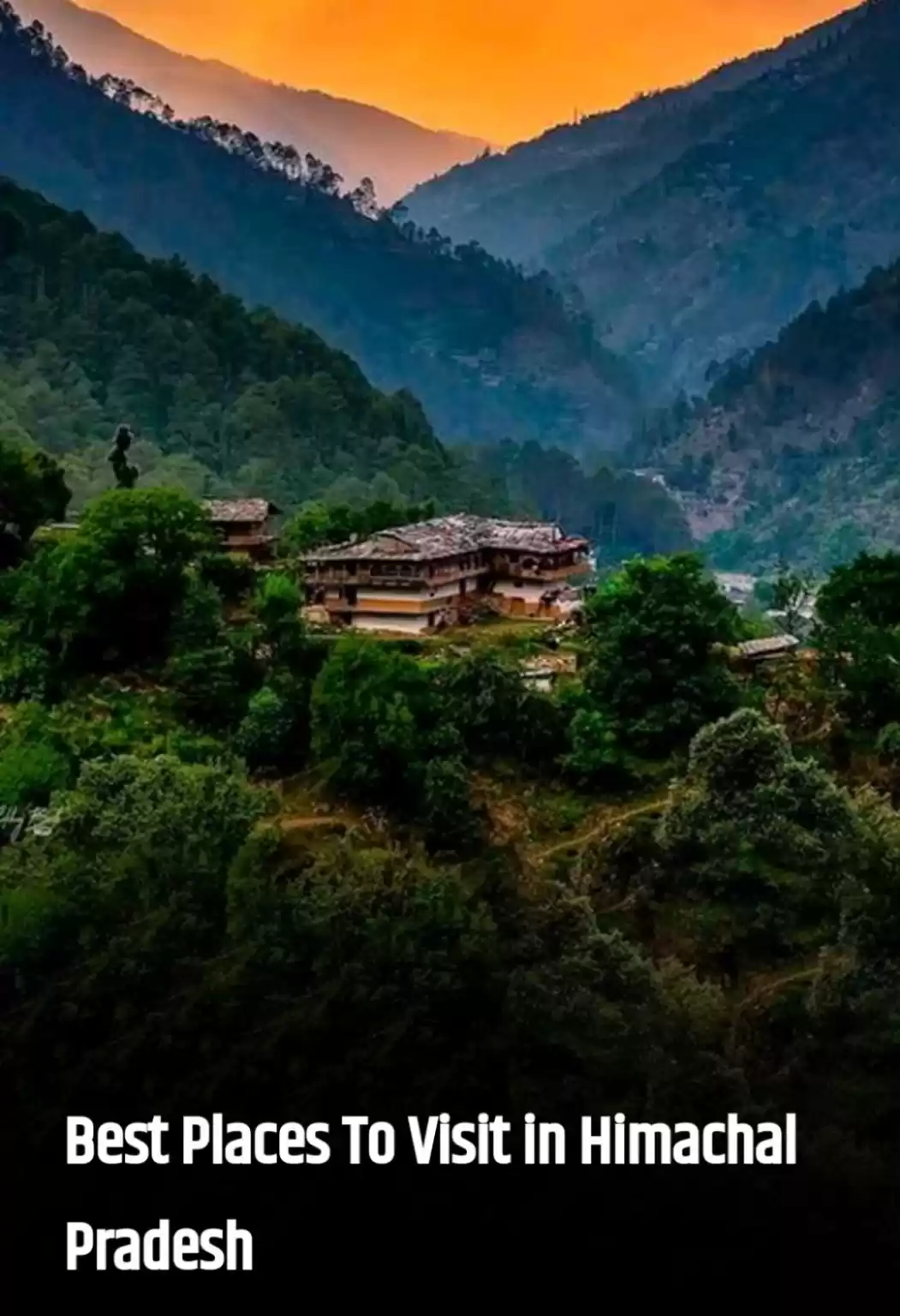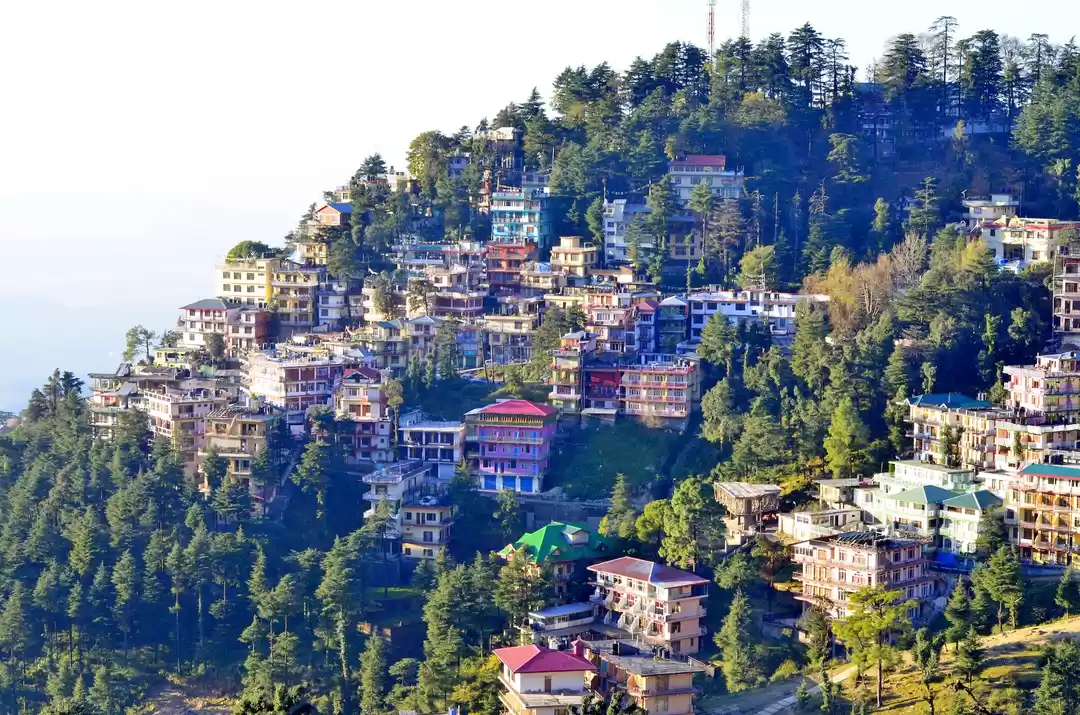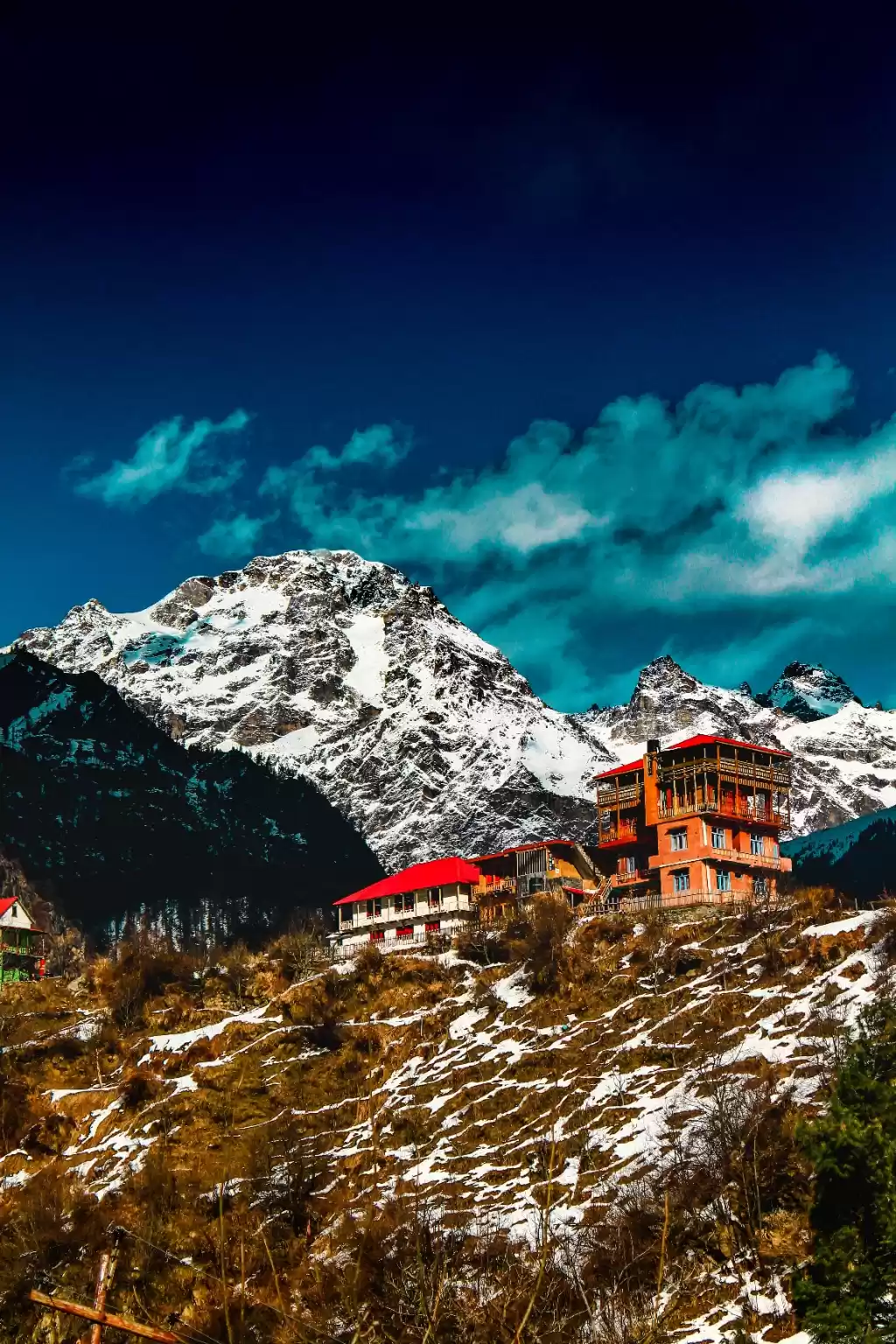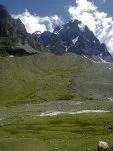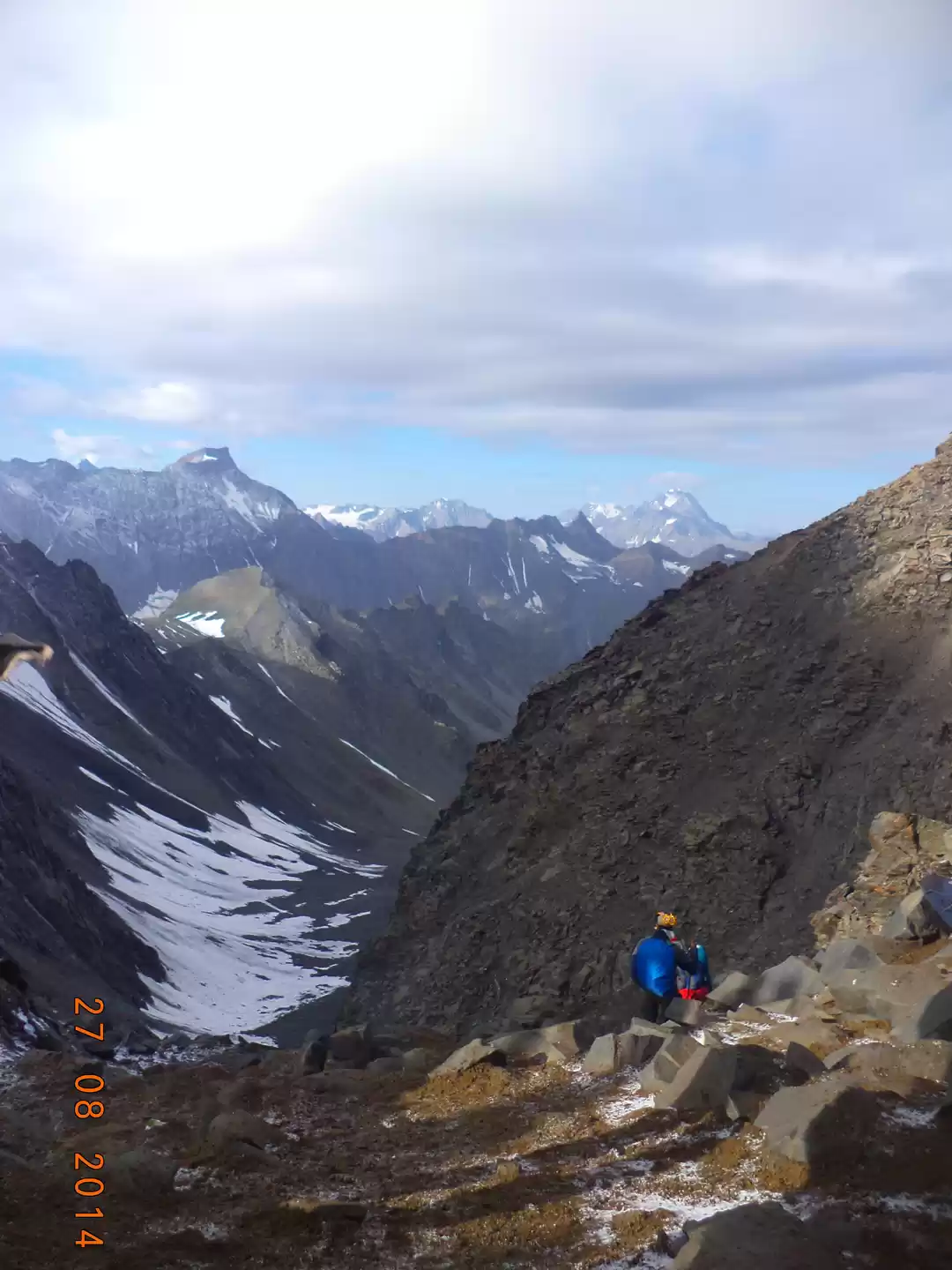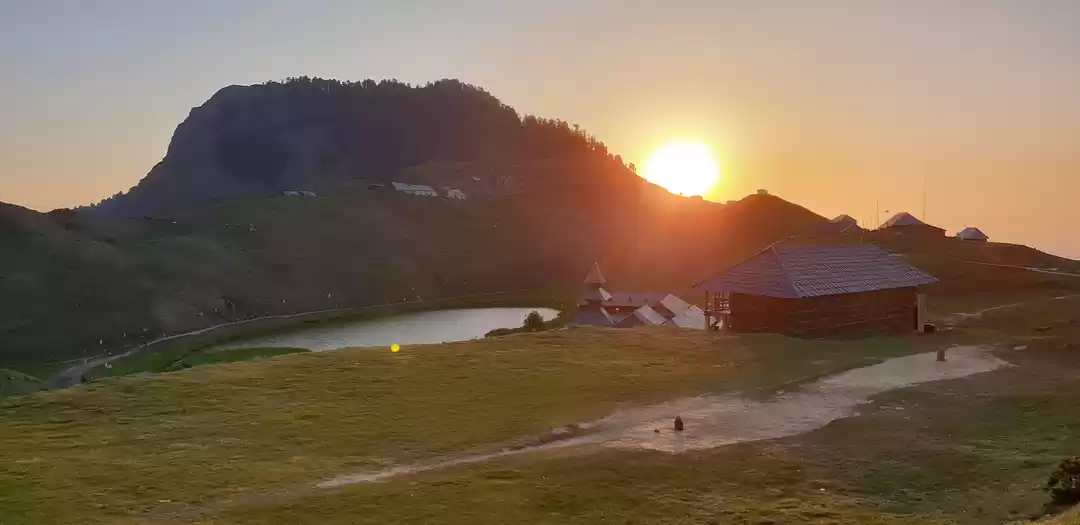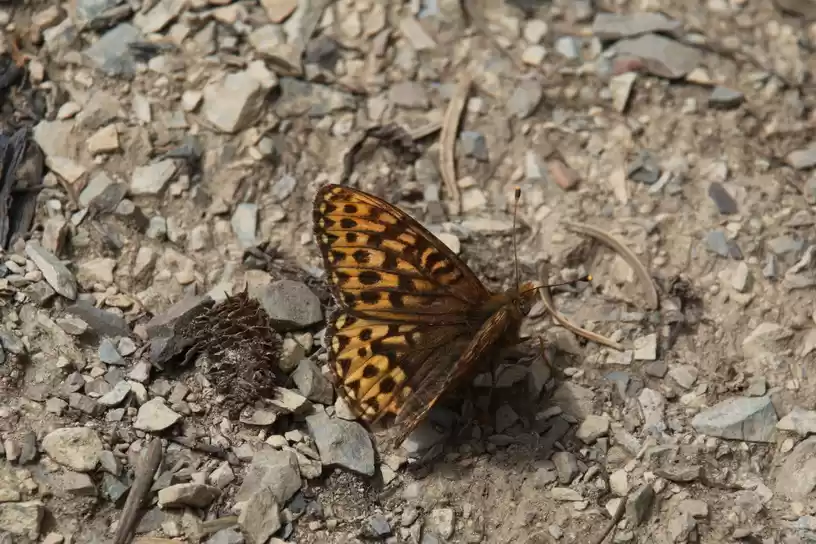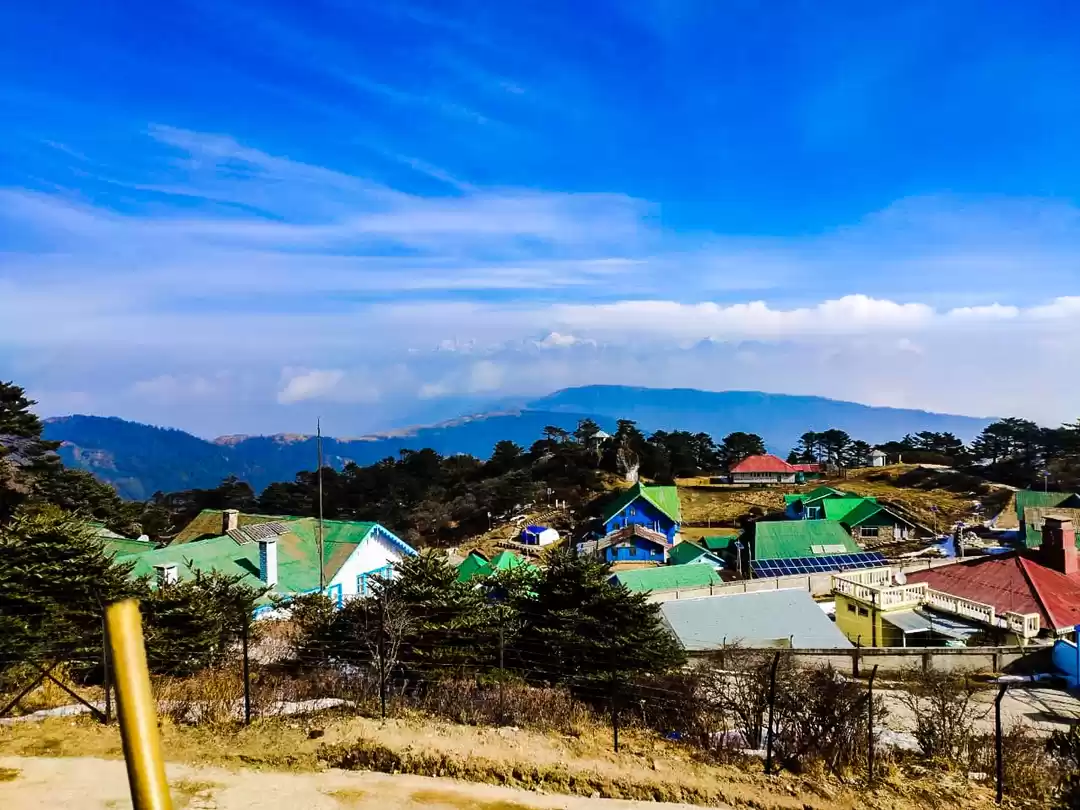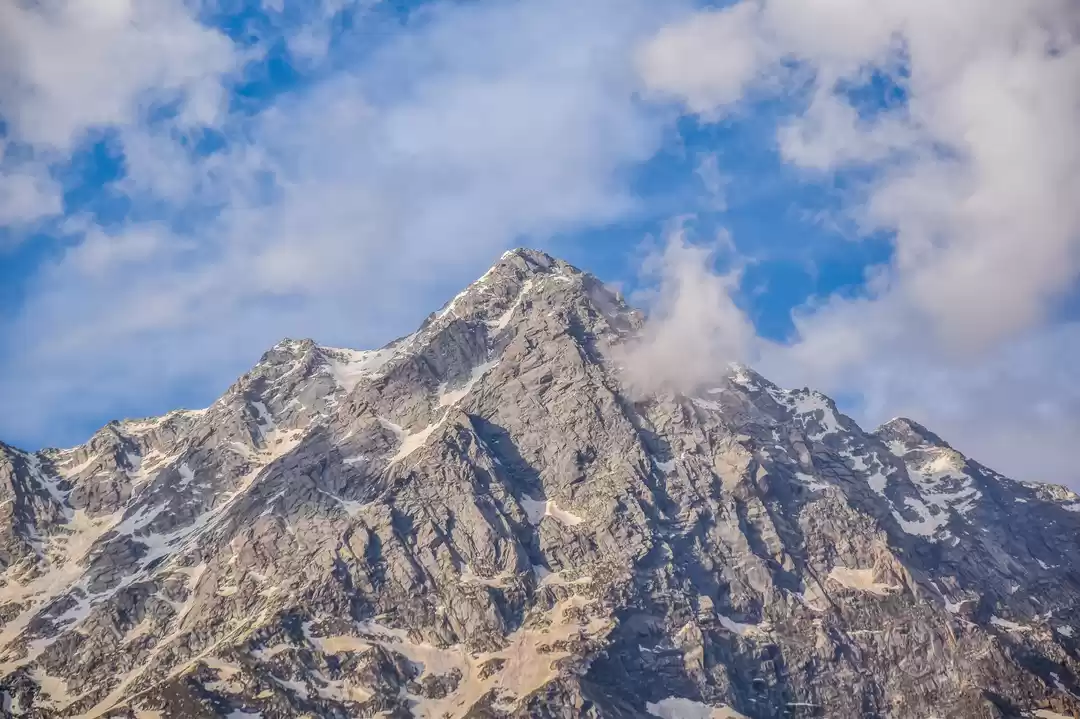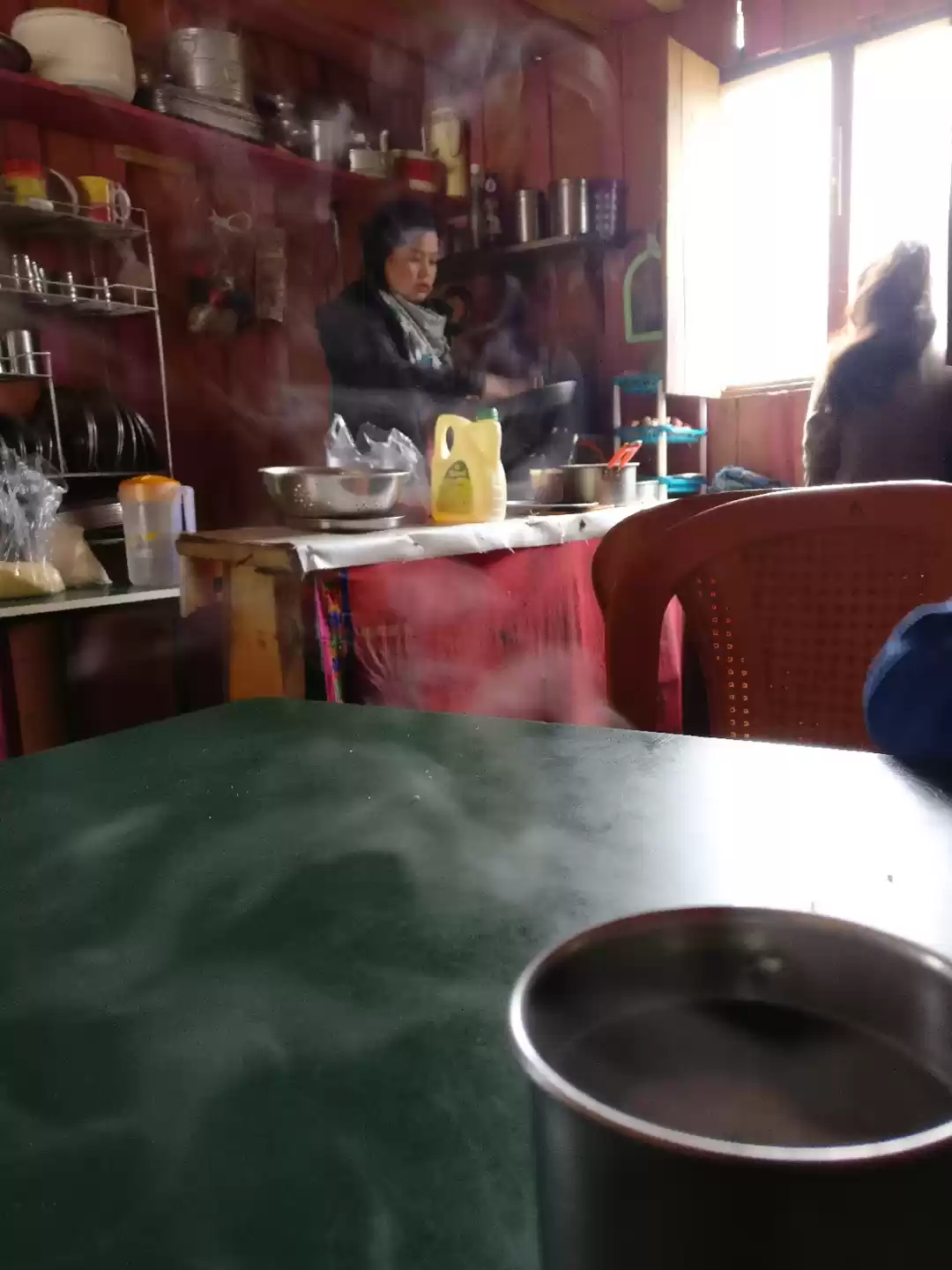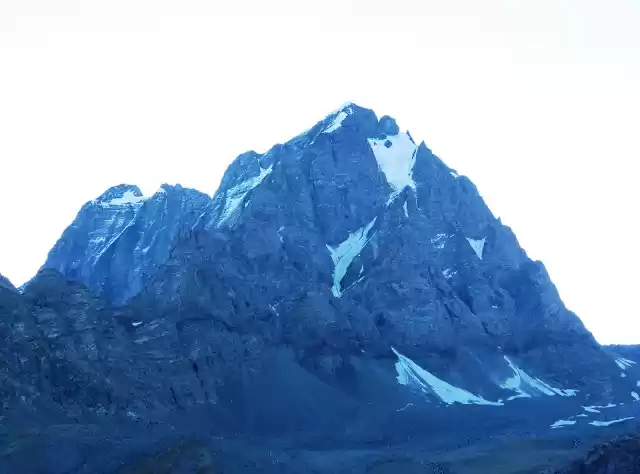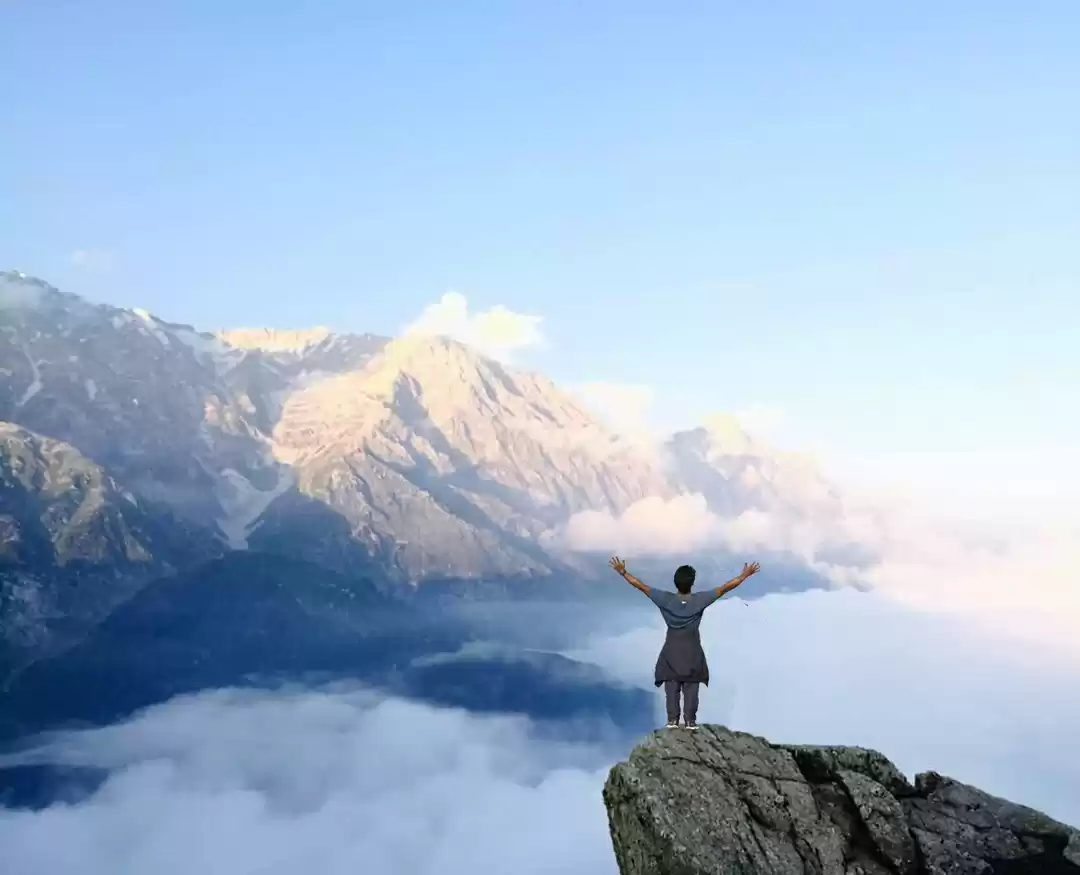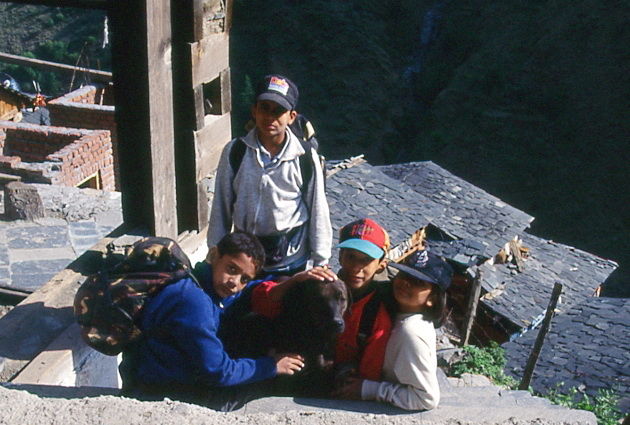
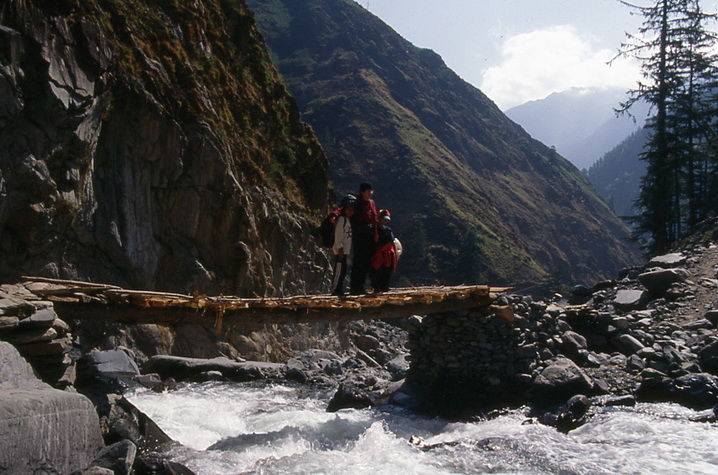
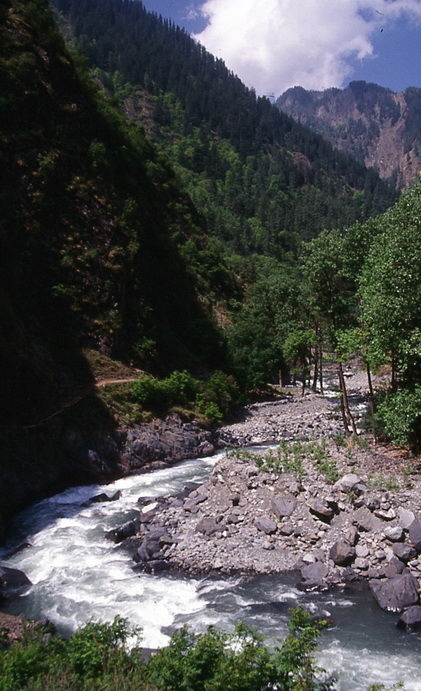
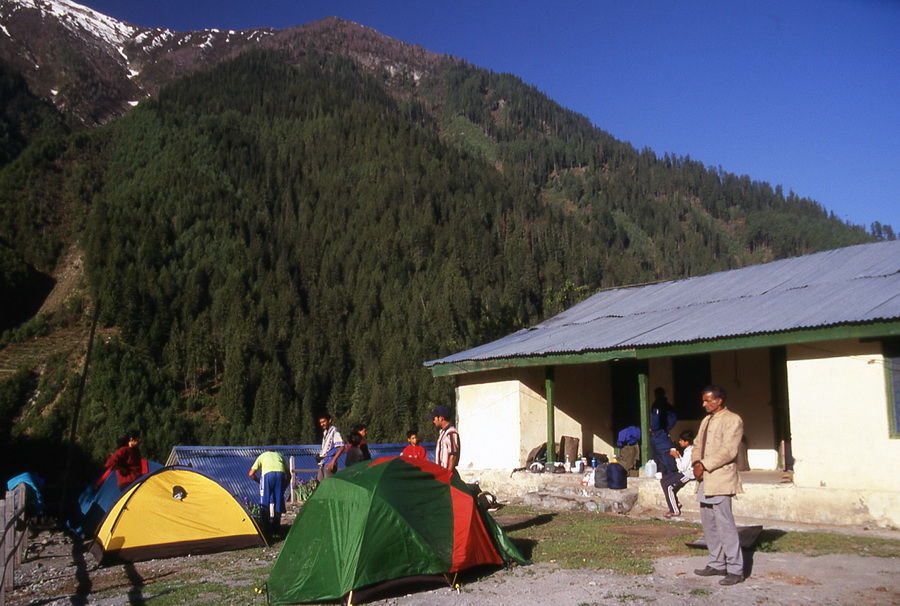
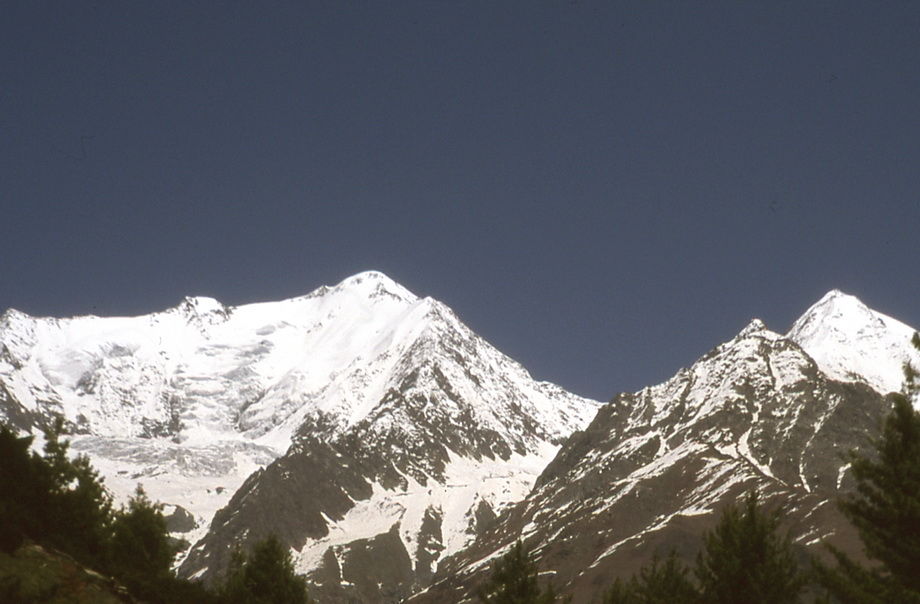
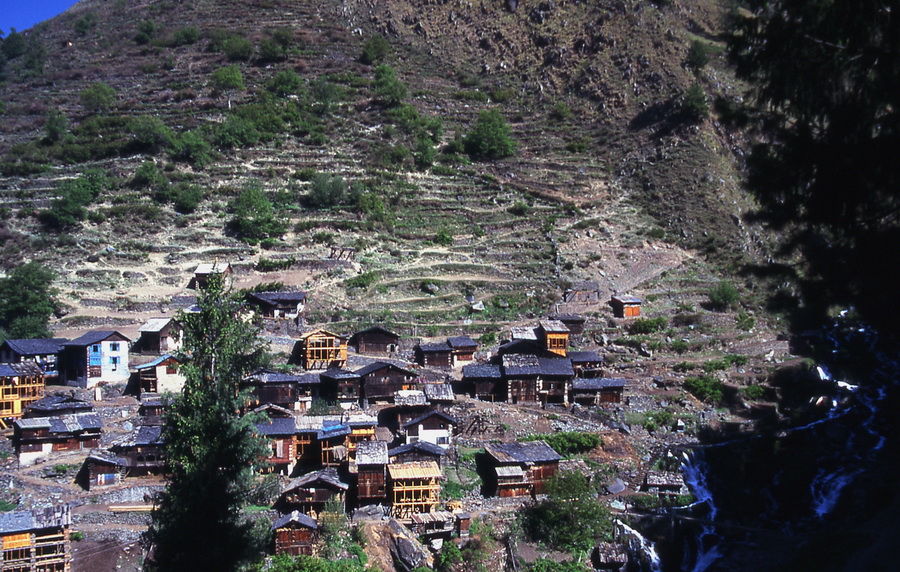
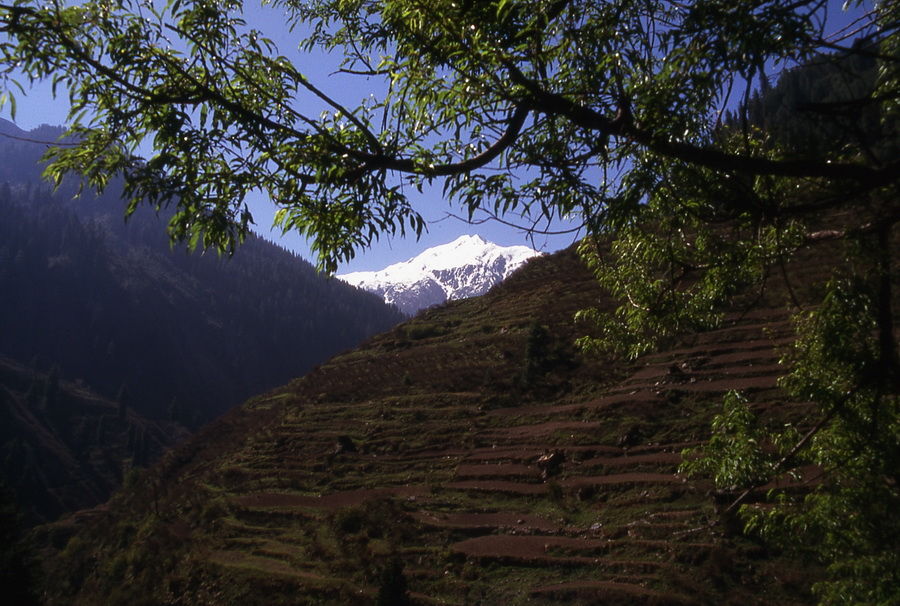
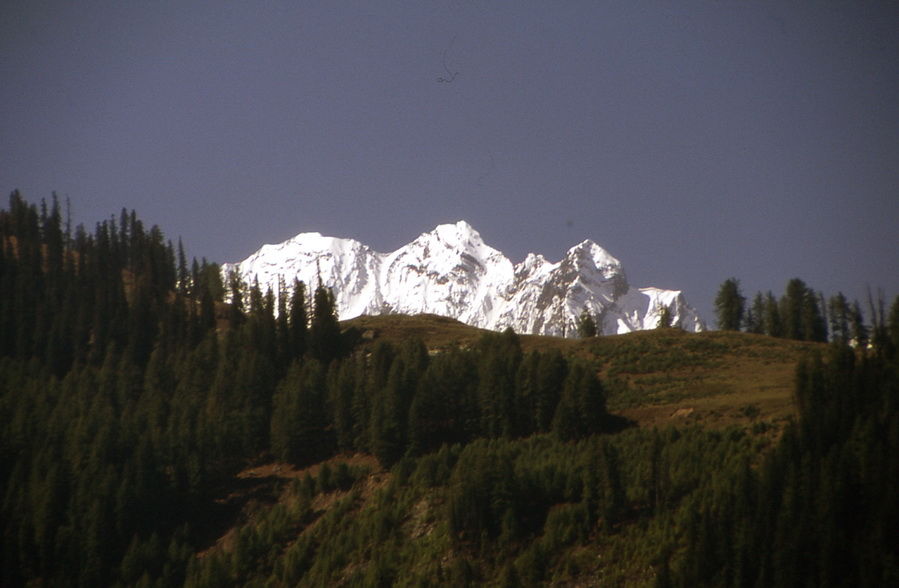
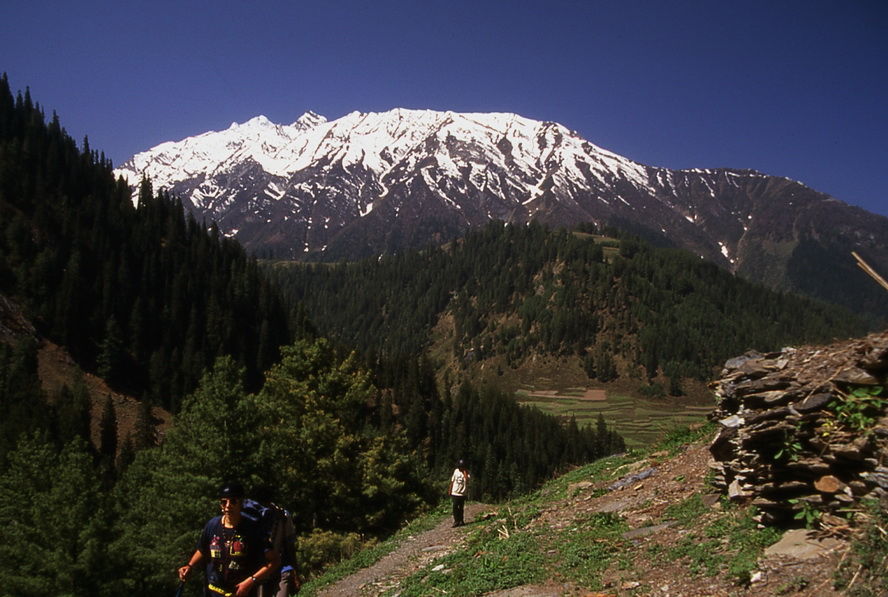
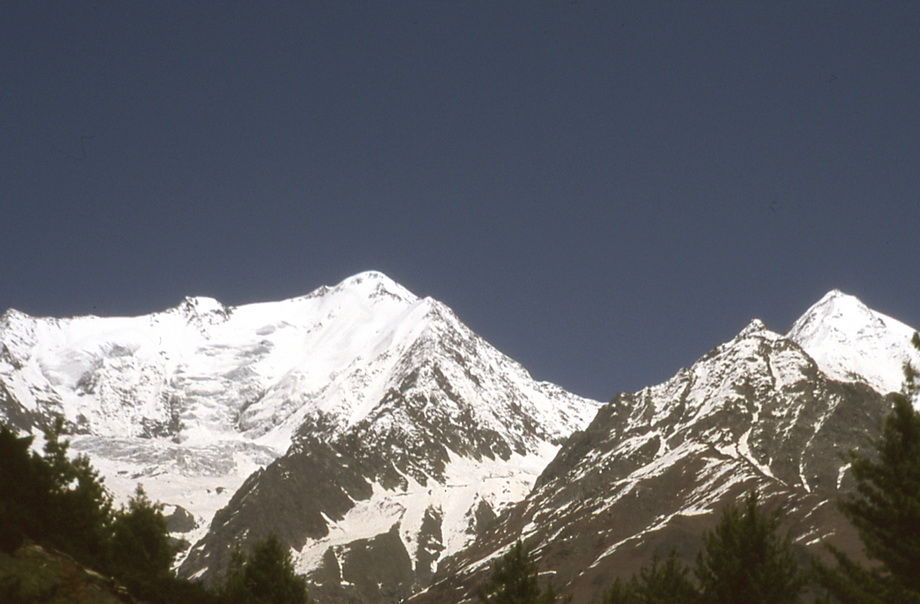
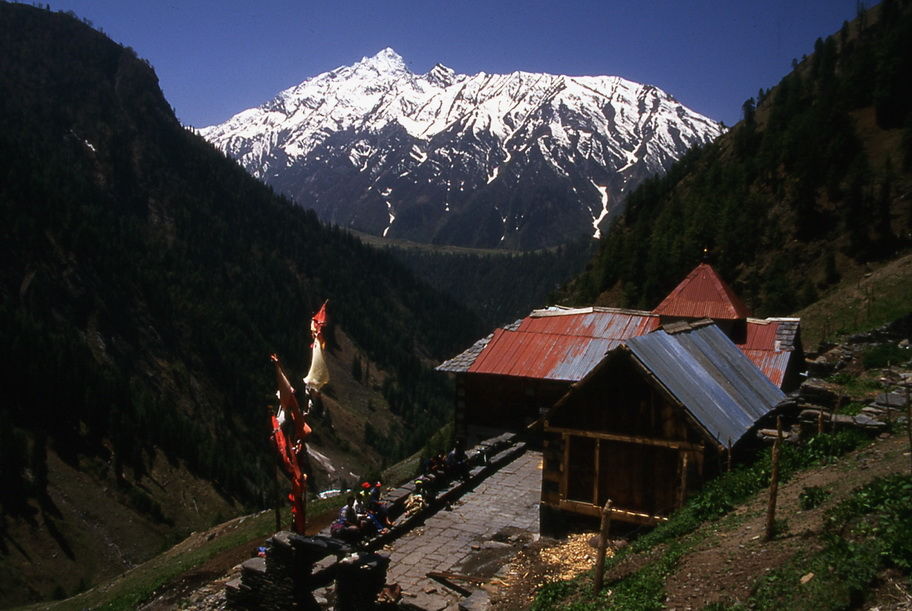
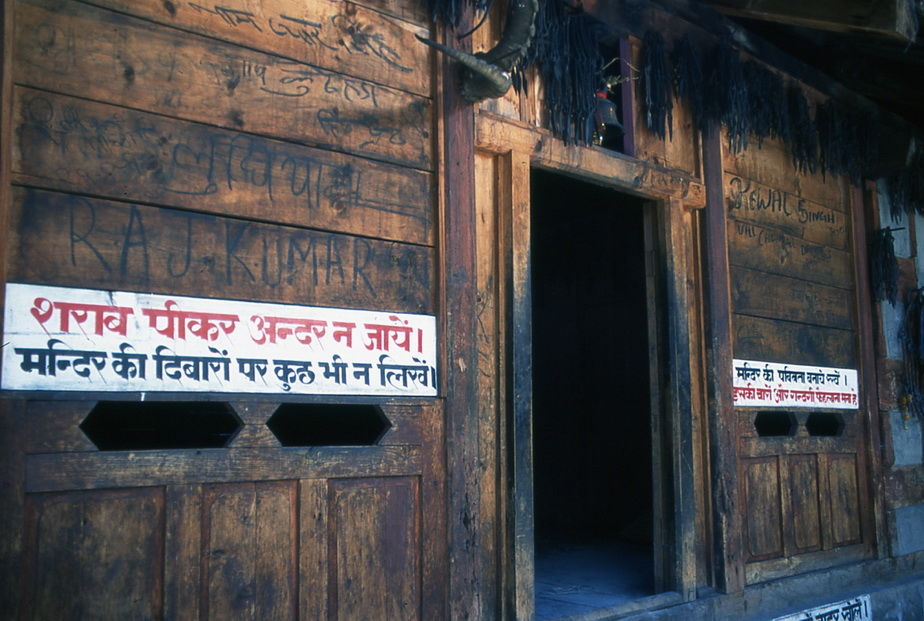
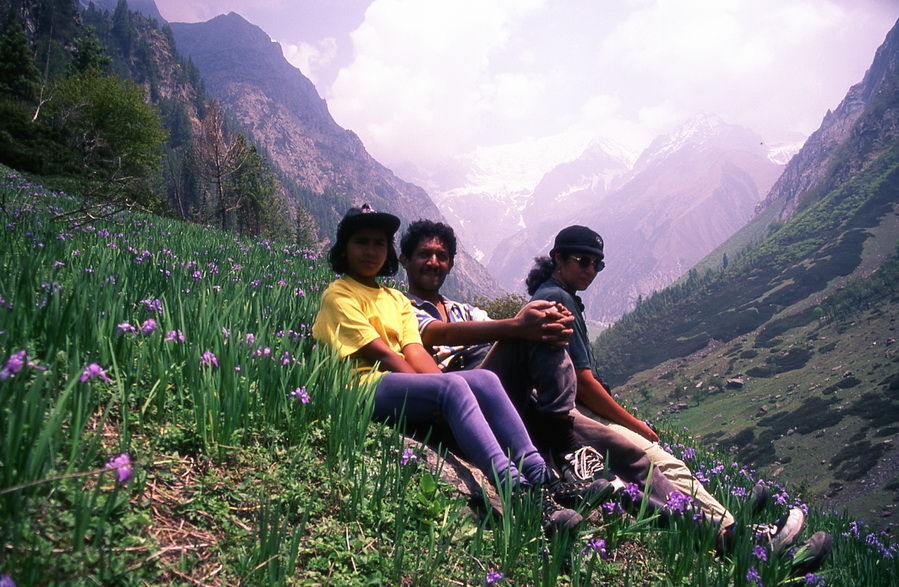
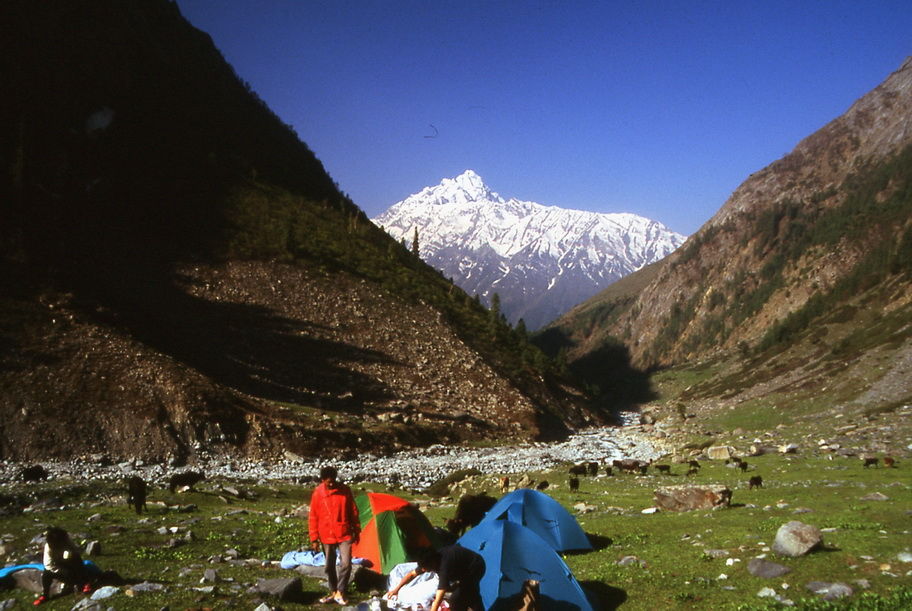
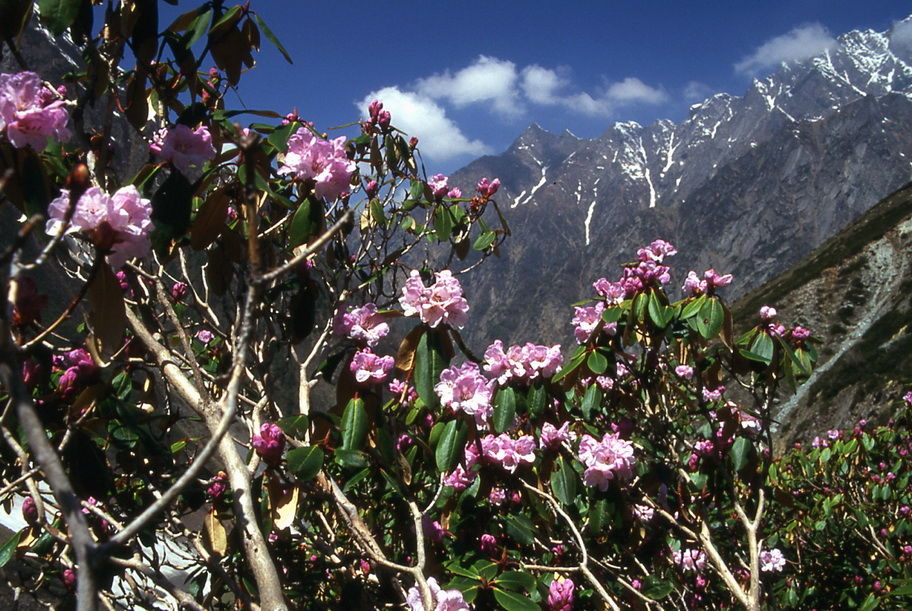
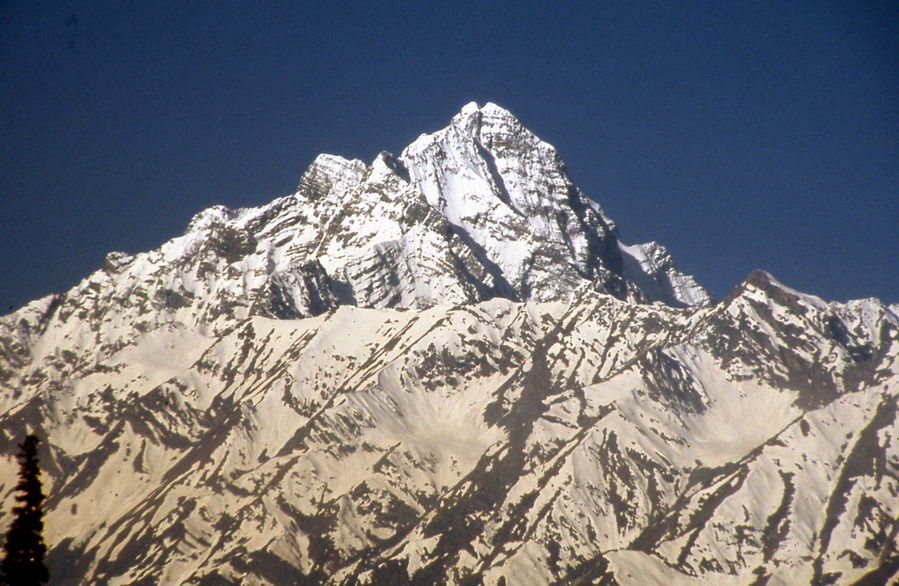
The first day's walk towards the village of Kugti turned out to be very pleasant and not very demanding for either the lungs or the legs. Which was a very good thing : the 12 km trail that we had to cover wound through shady conifers and ran for most of the way along an enchanting river, bubbling merrily down the valley in a friendly, welcoming manner. We meandered up the path, stopping often to admire the sparkling waters as they swirled and swept around and over beautifully patterned rocks and boulders. Even though we were hemmed in by high ridges on either side of the valley, the sun shone bright and warm from a blue sky : we couldn't have chosen a better day to begin our hike.
Small stands of irises appeared on the grassy banks flanking the trail. Stray villagers stopped to chat and point out the way. We paused at points of picturesque beauty and photographic possibilities and the children amused themselves by throwing stones into the river. Though born in the post modern world, they were happy to make do without the appurtenances and devices that seem to have become a part of everyone's garb : we carried no cellphones, no Ipods, no radios and no laptops. We were blissfully disconnected from the daily chatter and anxieties of the outside world. Best of all, it did not make us unhappy or discontented.
We walked in a loose group, each at his or own pace, the adults ensuring that the kids were never out of sight. In this haphazard fashion, listening to the whisper of the wind in the pines and the musical roar of the river, Sanal and I found ourselves suddenly in the center of Kugti. There was a cobbled square in the middle of some houses and a little store selling basic groceries. Thankfully, the shopkeeper also sold chai. This, as my friends know, I can never resist. Throw a chai stall onto a remote Himalayan trail and you've succeeded in stymieing my onward progress! The afternoon had advanced well into the evening by now, the misty blue light filtered through the conifers on the surrounding ridges and shot shafts of ethereal luminance which bounced off the slate roofs of the houses. I contemplated my serene surroundings as I sipped my cup of chai and waited for the rest of the group to catch up. A half hour went by, a quarter of an hour went by, and still there was no sign of Margaret or Franklyn or any of the other kids. Our guides too seemed to have gone missing.
Fearing a mishap, Sanal and I backtracked to the edge of the village. I needn't have feared : our guides had decided to set up camp for the night in the compound of the village school, which consisted of a modest little shed and a small grassy lawn in front of the verandah. We pitched a couple of tents and were very soon settled in. Some of the local children came to make our acquaintance and it was interesting to watch the tentative efforts that some of the bolder ones made to befriend our four city bred brats. Very soon the ice was broken and we had a whole bunch of kids darting in and out between the tents and the school building, squealing and laughing their way to a brief friendship. Darkness dictated that the Kugti children all go back to their homes.
The next day dawned bright and sunny as well and we were soon trudging across a wooden bridge spanning a torrent on the far side of Kugti. The path now swung to the left and gradually began to gain height. The vista opened up and in a matter of an hour or so some glittering peaks beckoned us up the valley. I had no idea what their names were, or even if they had any. But when we stopped for a breather and glanced back at the way we had come, a striking looking massif soared into the sky across the valleys and I had no doubt in my mind that this was the famous Manimahesh Kailash, ( 5655 metres / 18,500ft ) which towered over the lake of Manimahesh where thousands thronged to every year in a pilgrimage in August. Though of modest height by Himalayan standards, the peak dominated the skyline and exuded a character of stern aloofness, buttressed by sharp ridges and crenallations plunging vertically into the haze of the valleys below.
We ourselves were now confronted with a stern vertical ascent to the eyrie of a wonderful little temple perched high above. By the time we had huffed and puffed our way up to this beautifully carved wooden structure, it was lunch time. We sat on the stone ramparts of the courtyard eating the lunch we had packed in the morning before leaving Kugti. The wind dried the sweat from our bodies and the orange triangular flag fluttered briskly from the long pole it was attached to. The setting was perfect and had it not been for the ugly graffiti defacing many of the walls of the temple, it would have been easy to succumb to its divine charms and believe that this was truly a stop en route to heaven.
Leaving the temple behind and winding our way up through a series of slopes we came across a meadow overwhelmed with wild irises : this was certainly a branch of paradise. Feeling like pilgrims now, we kept on climbing up the trail till we reached the grazing grounds of Duggi. We pitched the tents on a grassy meadow next to a bubbling brook lined with yellow buttercups and heaved a sigh of relief. This was going to be our base for a couple of days while we explored the area and checked out the trail leading up to the Kugti pass (5040 m) which crossed the Pir Panjal range into Lahul.
We lit and gathered round a campfire that evening, nursing a feeling of well being and expectation. We were surrounded by big mountain slopes all around and we looked forward to walking around the meadows and side streams over the next few days.
This trip was originally published on The Accidental Trekker.



